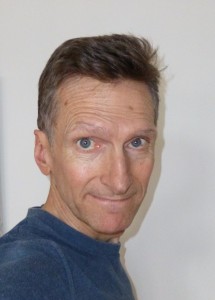21 January 2016
The Road to Peace
The journey to a new Syria is due to start in Geneva next Monday.
By Neil Tidmarsh
 Peace-talks involving all Syrian parties fighting for or against Assad are due to start in Geneva on January 25, with a cease-fire coming into force at the same time. Less than five days away now.
Peace-talks involving all Syrian parties fighting for or against Assad are due to start in Geneva on January 25, with a cease-fire coming into force at the same time. Less than five days away now.
That’s hard to credit, given the escalation in the war over the last week as Assad and his Russian and Iranian allies intensify their action against the rebels. They’ve opened a new front in the south, against the Southern Front alliance, a group committed to democracy and religious tolerance and described by the Carnegie Institute as Syria’s “last best hope”. Further north, on the Turkish border, over 100 Russian airstrikes in two days preceded the regime’s seizure of the town of Salma. The regime has also been gaining ground around Aleppo and Damascus.
Reporting on this escalation, The Times suggests that it bodes badly for the Assad/Russian commitment to any kind of peace process. Equally, however, it could indicate quite the opposite; perhaps Assad and the Russians are simply trying to grab as much territory as possible, and inflict as much damage on the enemy as they can, while they still have the chance, i.e. before the map is frozen and conflict comes to a halt.
There are many other serious obstacles to be overcome between now and next Monday, nevertheless. The first is the extent of Assad’s participation in the process. The regime, obviously, would like full participation; in the peace-negotiations, in drawing up a new constitution, in elections, even in whatever new authority emerges from the process. Russia, interestingly, has been non-committal about most of this, beyond suggesting that the immediate resignation of Assad is not an acceptable pre-condition. Nevertheless, many rebel groups insist that it is an essential pre-condition. Most rebel groups are refusing to deal with Assad himself at any stage.
Another obstacle is the question of how to include the Kurds. They have been a US ally against jihadists, so should they be included among the opposition? Yet they have also co-operated with the regime and have been cultivating ties with Russia in recent months, so should they be included with the regime? This week Turkey vetoed the Kurdish PYD from the opposition negotiating team, claiming that the PYD is backed by Assad and Russia and so should not have representation among the rebels but among the regime and its partners. Turkey also claims the PYD has connections with the Kurdish PKK, a group regarded as terrorists in the west and which has launched an insurgency inside Turkey. The PYD was also excluded from talks in Riyadh last month, and responded by setting up their own platform called the Syrian Democratic Council, demanding their own invitation to next Monday’s talks.
A third obstacle is the exclusion of terrorist groups. Since Russia’s entry into the war, the regime’s attitude seems to have been that all opposition groups are terrorists. Now Russia and the USA are working hard together to agree on a definition of ‘terrorist’. Opposition groups encompass a wide range of beliefs and aims, from those fighting for the kind of free and secular society envisaged by the Arab spring, to those fighting for fundamental Islam. The starting point has to be a commitment to the democratic process and religious freedom.
A fourth obstacle is the question of the rebel areas under siege by regime forces where hundreds of thousands are facing starvation. A simple cease-fire could leave those sieges intact, still preventing relief and humanitarian aid from getting through. Many rebel factions (including the Army of Islam, one of the largest groups) have said that they will boycott the talks unless such aid and relief is allowed through.
And yet the fact that the process has come this far is in itself reassuring when considering how much further it might or might not go. As many as nineteen countries gathered in Vienna last year to arrange the talks and ceasefire which are about to start and the timetable for preparing a new constitution and holding elections which are to follow. That Saudi Arabia and Iran – and indeed the USA and Russia – should sit down at the same table was considered as little less than miraculous at the time. And the unity shown by the UN Security Council – which rarely agrees on anything – in endorsing the ‘road map to peace’ produced in Vienna was astonishing.
And consider the shocks that such co-operation has been given in recent months: increased Turkish and Russian hostility following the shooting down of the Russian bomber; increased tension between Saudi Arabia and Iran following the execution of the Shia cleric Sheikh Nimr al-Nimr; and Saudi opposition to Iran’s new status following the lifting of sanctions after freezing its nuclear ambitions. And yet Vienna’s ‘road map to peace’ has held so far. Neither Turkey nor Russia, Saudi Arabia nor Iran have tried to tear it up.
The next few days will show what kind of vehicle, if any, will be using that map. Let’s hope it will be road-worthy come next Monday, and that no one gets left behind on the pavement.

